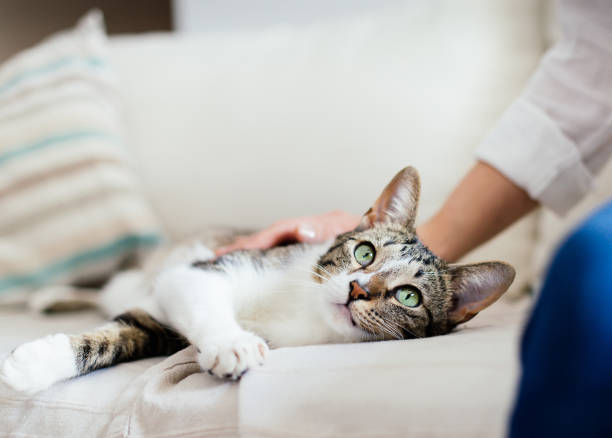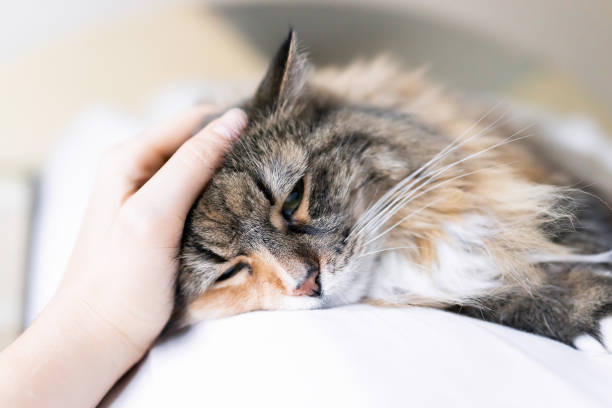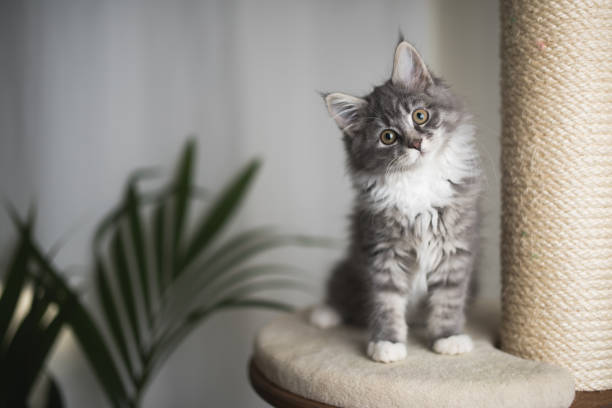Last month we discussed dogs and hypothyroidism and as promised, this month cats will take the spotlight.
As we covered last month, the thyroid gland is found at the base of the neck and is responsible for producing the thyroid hormone. While dogs tend to develop an underactive thyroid, good old cats – who just love to be different – tend to develop an overactive thyroid.
An overactive thyroid is called ‘hyperthyroidism’ and is a relatively common disease of older cats (over 8 years old). In most cases, it is caused by a non-malignant growth of the thyroid gland that causes an increased production of thyroid hormone. It is very uncommon in dogs and where it does occur is always caused by a tumor in the thyroid.

Signs and symptoms:
If you have an older kitty, here is what you should look out for:
- Weight loss
- Excellent appetite
- Poor hair coat
- Hyperactivity
- Vomiting
- Diarrhea.
Please note that hyperthyroidism is a progressive disease. Signs, if untreated, will continue to worsen until the cat dies. Therefore, if you suspect or are unsure, always give us a call and book a consult where we can conduct a thorough assessment.
Diagnosis:
Hyperthyroidism is diagnosed by running a blood test to determine the cat’s thyroid hormone level. Additional blood tests will be performed concurrently to screen for other problems that might be present in older cats and might influence treatment of choice and prognosis.

What sort of treatment to expect?
There are a few treatment options that offer advantages and disadvantages, which will be discussed following a diagnosis. These include:
- Medication
“Anti-thyroid” drugs are rarely used as cats can (unlike dogs) make thyroid hormones as they have other tissues in the body that produces them. If used, however, these drugs block the production of the thyroid hormone. The use of these drugs does not cure the disease, but they can effectively control the symptoms of hyperthyroidism when given daily.
- Surgery
Surgery is unlikely to be performed to remove overactive thyroid glands, as there are serious complications associated with damaging or removing parathyroids, so it is rarely done these days.
- Radioactive Iodine
This treatment involves referral to Werribee Veterinary Clinic and is the least invasive treatment for your cat. Radioactive Iodine (I131) is given as a single tablet or injection. It is effective in correcting the hyperthyroid state in over 85% of cases with a single dose.
If you have any concerns that your cat may have a thyroid issue please book in for a consultation either online or by calling our awesome reception team on 9369-1822

